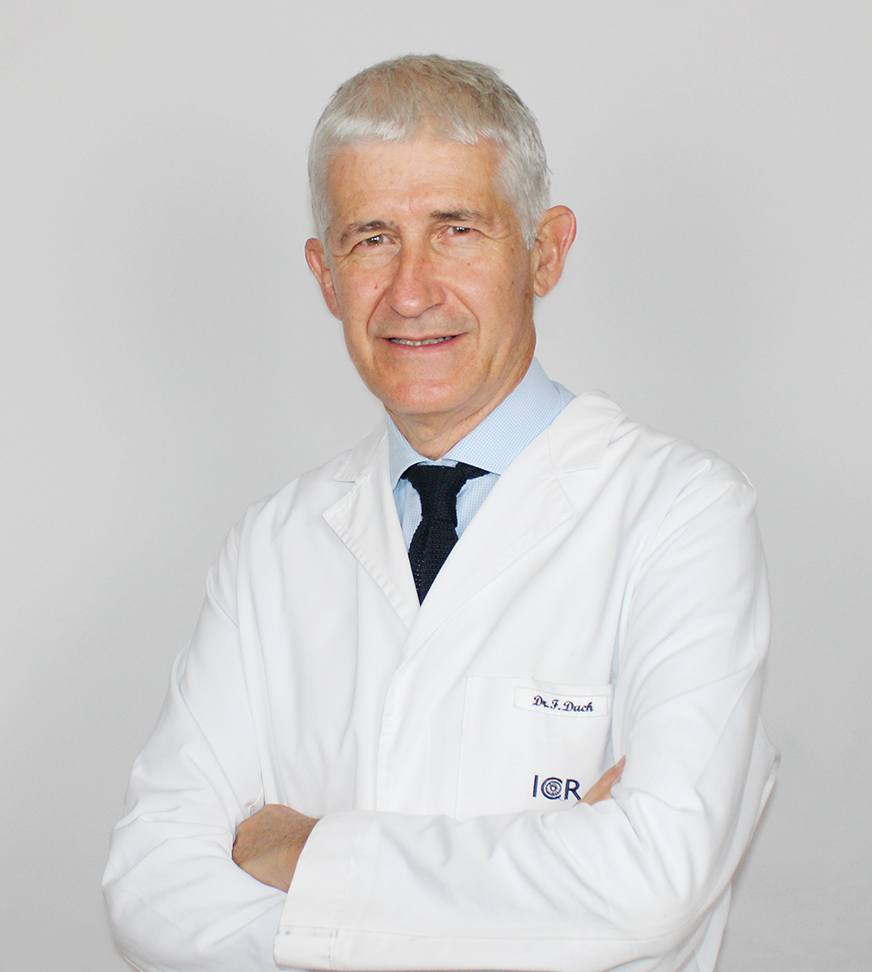

Do you have any doubts? Fill in your details and we will contact you.

Wide availability to undergo the tests from Monday to Friday. Request an appointment

Different options to pay for your treatment depending on your needs. Contact us
Presbyopia is diffulty focusing on near objects (reading, using a computer, etc.), which typically occurs around the age of 40-45. The eye starts to have trouble focusing at these distances, which increases with age. It is a natural physiological process that affects everyone, although some experience it sooner than others. It is normally corrected with glasses for near vision or contact lenses. The prescription required to correct the presbyopia is added to that which the person may need for their distance vision.
Refractive surgery has evolved in recent years and can now correct this problem, just as we are able to correct myopia, hyperopia and astigmatism.
Surgery for presbyopia includes different techniques, which will be selected depending on each case, the patient’s age, their prescription for distance vision and the characteristics of the eye. Each case will be evaluated using a series of tests to be able to decide which is the best technique for each individual.

Multifocal lenses are implanted into the eye to replace the lens. They split the light across different points creating a series of focuses, the main ones being for distance vision and the other for near. In the case of the more modern lenses (trifocals), there is also one for middle distance vision, meaning that it can offer freedom from glasses at all distances.

There are different types of laser surgery: depending on the patient’s specific case, it can be carried out by applying excimer laser directly, without lifting any layers of corneal tissue, or lifting these layers with a femtosecond laser before applying the excimer laser to correct the diopters.

It involves splitting vision between the eyes so that one dominates for near vision and the other distance vision. This means that when both eyes are working together, distance will be good at both distances. This can be achieved using either laser techniques or lens implants.

These are implanted into the thickest part of the cornea. Intracorneal rings, the most common type, are designed to alter the curve and refractive strength of the cornea and are used above all in cases of irregular corneas.
No. It is a natural part of ageing and cannot be prevented. Nevertheless, it is a good idea to lower the brightness in electronic devices and limit their use.
If we use the technique that replaces the natural lens with an intraocular lens then we prevent cataracts from appearing. The ophthalmologist will study each case to determine which is the best technique for the patient.
The ophthalmologist evaluates each case, but in many cases all these refractive defects can be elminated in one single surgical procedure.
Each individual case needs to be evaluated, but with the latest generation tools that we possess we can study whether this a suitable option (and in many cases it is).
In the operation we remove the natural lens and replace it with an intraocular lens with a fixed prescription.
Visual recovery is usually fast but it is still surgery, meaning that the patient will needto rest for a few days and attend the post-operative consultations. Additional recovery time will be required before doing sporting activities again.

Contact us or request an appointment with our medical team.